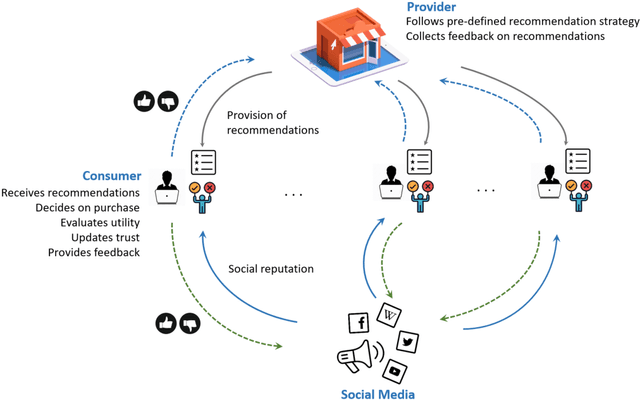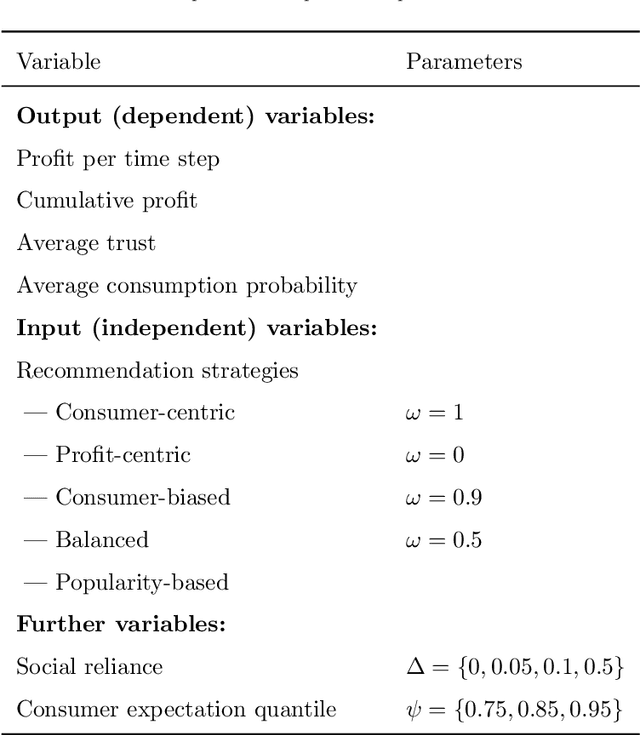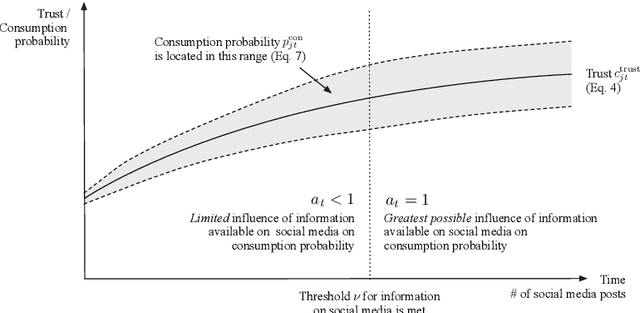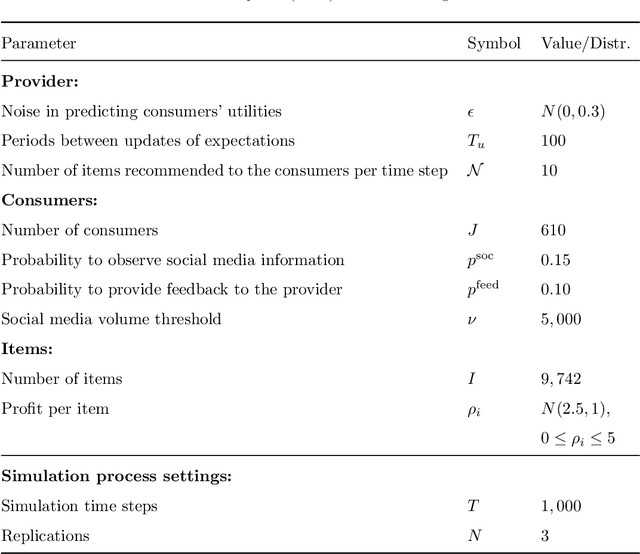Nada Ghanem
Balancing Consumer and Business Value of Recommender Systems: A Simulation-based Analysis
Mar 10, 2022



Abstract:Automated recommendations can nowadays be found on many online platforms, and such recommendations can create substantial value for consumers and providers. Often, however, not all recommendable items have the same profit margin, and providers might thus be tempted to promote items that maximize their profit. In the short run, consumers might accept non-optimal recommendations, but they may lose their trust in the long run. Ultimately, this leads to the problem of designing balanced recommendation strategies, which consider both consumer and provider value and lead to sustained business success. This work proposes a simulation framework based on Agent-based Modeling designed to help providers explore longitudinal dynamics of different recommendation strategies. In our model, consumer agents receive recommendations from providers, and the perceived quality of the recommendations influences the consumers' trust over time. In addition, we consider network effects where positive and negative experiences are shared with others on social media. Simulations with our framework show that balanced strategies that consider both stakeholders indeed lead to stable consumer trust and sustained profitability. We also find that social media can reinforce phenomena like the loss of trust in the case of negative experiences. To ensure reproducibility and foster future research, we publicly share our flexible simulation framework.
 Add to Chrome
Add to Chrome Add to Firefox
Add to Firefox Add to Edge
Add to Edge